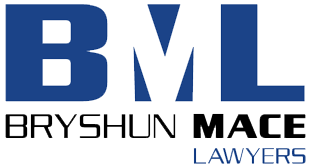Probate can feel overwhelming if you’ve just lost a loved one and are now responsible for managing their estate. This guide, prepared by a probate lawyer Kelowna BC families can trust, will help debunk common probate myths and walk you through how the probate process works in British Columbia. Whether you’re an executor or a beneficiary, understanding your legal obligations is key to avoiding delays and protecting yourself from liability.
Common Misconceptions About Probate
Myth #1: “Probate is always required for an estate.”
Fact: Probate is only necessary when the deceased owned assets solely in their name that require legal transfer. Jointly held property or assets with named beneficiaries (like life insurance or RRSPs) often bypass the probate process.
Myth #2: “Executors can distribute the estate immediately after death.”
Fact: Before assets can be distributed, the executor must complete key steps—obtaining probate, paying off debts, and filing taxes. Rushing the process could result in legal and financial penalties.
Myth #3: “Probate is an unnecessary legal process.”
Fact: Probate validates the will and provides legal protection for executors and beneficiaries. Without it, banks and third parties may not release assets, and disputes are harder to resolve.
Myth #4: “The probate process in BC takes years.”
Fact: While probate can take several months, working with a probate lawyer in Kelowna helps avoid common errors that cause unnecessary delays.
Step-by-Step Guide from a Probate Lawyer Kelowna BC
Step 1: Determine If Probate Is Required
Probate is typically needed if the deceased:
- Owned real estate in their name alone
- Held large financial accounts without designated beneficiaries
- Had no joint ownership of significant assets
Step 2: Filing for Probate
The executor files an application with the BC Supreme Court to validate the will. This includes:
- The original will
- Death certificate
- Inventory of assets and liabilities
Step 3: Notifying Creditors & Paying Debts
The executor must identify and notify all creditors. Debts must be settled before assets can be distributed. This includes funeral expenses, taxes, credit cards, and any outstanding loans.
Step 4: Estate Tax & Legal Obligations
A final tax return must be filed with the CRA. Once taxes are paid, the executor can request a clearance certificate, confirming all tax matters are settled.
Step 5: Distributing Assets to Beneficiaries
After settling debts and taxes, the executor follows the will’s instructions for distributing the estate. If no will exists, BC’s intestacy rules determine how assets are divided. Learn more about estate administration services offered by Bryshun Mace.
Practical Tips for Executors in BC
- Get legal support early to avoid mistakes in probate applications.
- Keep accurate records of all estate-related transactions.
- Communicate openly with beneficiaries to prevent misunderstandings.
FAQs About Probate in British Columbia
How long does probate take in BC?
It depends on the complexity of the estate. Straightforward cases may take 3 to 6 months. Complex estates or disputes can extend the timeline to a year or more.
Can an executor be held personally liable?
Yes. If an executor fails to pay debts, mismanages funds, or distributes assets improperly, they can be held legally responsible.
Why Work with a Probate Lawyer Kelowna BC
- Guidance on fulfilling executor duties under BC law
- Legal protection during every step of the probate process
- Help resolving estate disputes and delays
- Expertise in estate tax filing and clearance certificates
Need help navigating probate? Contact a probate lawyer Kelowna BC residents trust. Bryshun Mace offers expert guidance on estate administration and executor duties.
Disclaimer:
This article is for informational purposes only and does not constitute legal advice. For personalized legal guidance, consult a qualified lawyer.





